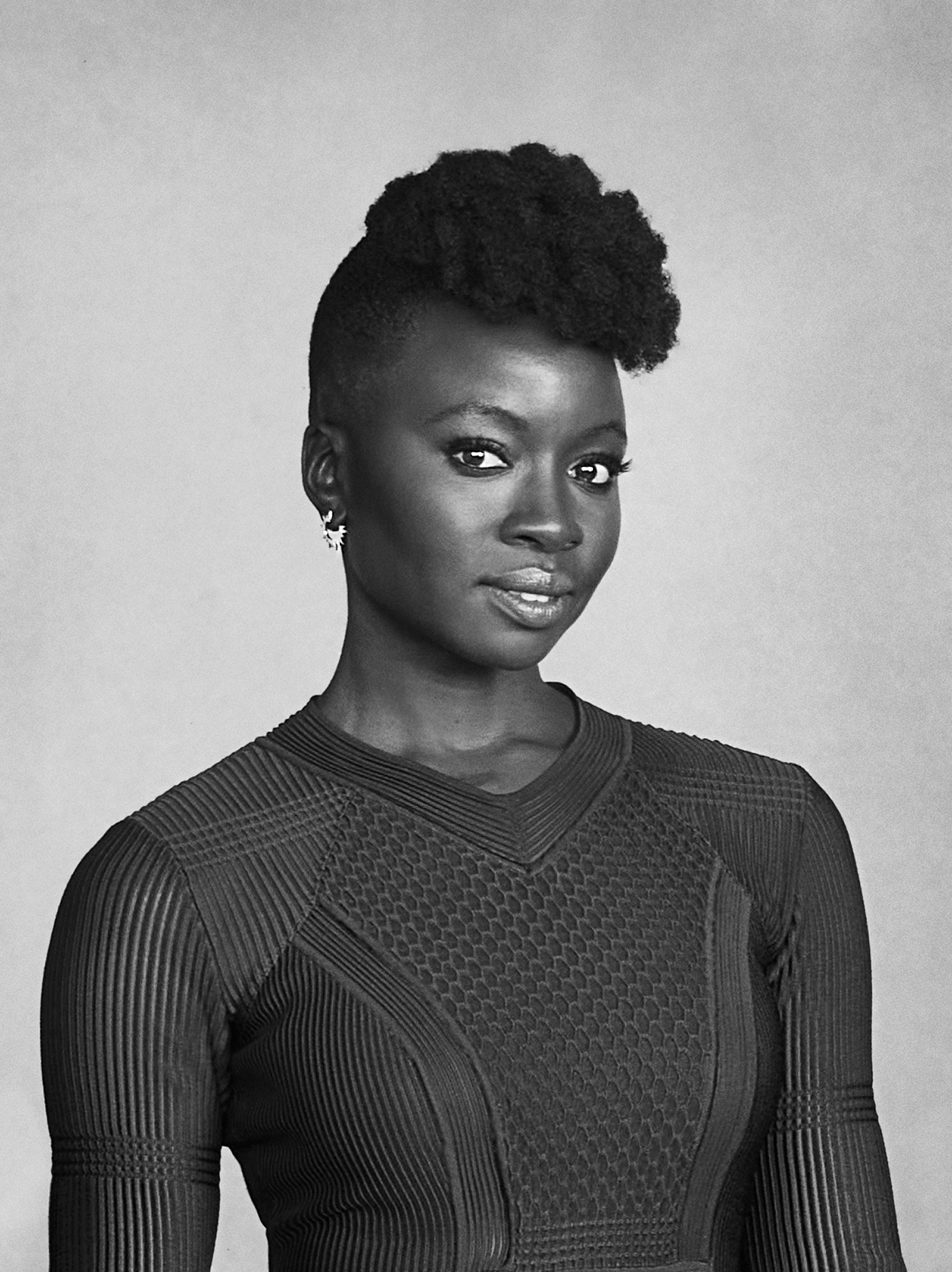As an award-winning actor, playwright, and women's rights activist, Danai Gurira is the definition of a multi-hyphenate—but growing up, she had her sights set on being a social psychologist and working in public policy. “I just didn't see how I could use the arts to contribute to society,” she says. “I thought being an artist seemed light and flighty; I wanted to focus on the heavy stuff.”
It wasn’t until 1999, when she was studying abroad in Cape Town as a junior at Macalester College, that she realized she could use her passion for storytelling to push for social change. Reading about how South African actor and playwright John Kani was imprisoned in 1976 for performing in the anti-apartheid play Sizwe Banzi is Dead inspired her to create art that would push boundaries. “Learning about that type of courage, I knew I had to be courageous in my own way,” she says. “I needed to tell the stories that I felt needed to be heard.”
The Iowa-born, Zimbabwe-raised performer—who describes her nationality as “Zimerican”—has stuck to her goal. As an actor, she’s become known for portraying complex characters on the big and small screen. And as a playwright, she has centered African stories in her work, most notably in her history-making play Eclipsed, a political drama of five Liberian women held captive during the final weeks of the Second Liberian Civil War. It was the first play with an all-Black and all-female cast and creative team to premiere on Broadway, and earned Gurira a Tony nomination for best play in 2016.
Through her advocacy, Gurira, who was named an U.N. Women Goodwill Ambassador in 2018, champions issues surrounding gender equality and human rights, using her celebrity to promote those who are doing important work, but seldom get the spotlight. Seven years ago, she founded Love Our Girls, an online campaign bringing awareness to the injustices women and girls face around the globe, to feature women who are “not trying to get attention,” she says. “They're just trying to change the issue.”
On Love Our Girls’ website and her own social media accounts, Gurira offers experts a chance to teach others about the challenges they face and how they're creating change. Recently, she spoke with Abigael Simaloi Pertet, an agronomist with the Mara Elephant Project Experimental Farm in Kenya and Tanzania, and Barbrah Naserian Kiming’o, a young Maasai woman working at Emboo River, the first carbon-neutral footprint safari in Kenya, about their work in environmental conservation. “I cannot presume to say I know how to deal with all of these issues,” she says. “But I know that there are some excellent, amazing women who wake up every day and fight for these issues, pushing their way through a world that's pushing against them.”
Fighting for those that need to be heard is also why she co-founded Almasi Collaborative Arts over a decade ago. The nonprofit, based in Zimbabwe, supports Africans in the dramatic arts through education and collaboration with art schools and institutions in the United States. Gurira says a lack of access and opportunity has made it hard for African playwrights to stage their work in other parts of the world—but by offering training with professional artists from the United States she hopes to close the gap. “I've been very inspired by the people that we have been able to champion.” she says. “Their artistry, their focus, and their courage with the stories they're telling. That's really what's allowed us to continue.”
In the next five years, Gurira would like to see Almasi expand beyond Zimbabwe to take up residence in other African nations where she knows there are award-winning playwrights just waiting to be discovered. “We have a lot of stories to tell,” she says. “And only we can tell them.”
This profile is published as a part of TIME’s TIME100 Impact Awards initiative, which recognizes leaders from across the world who are driving change in their communities. The next TIME100 Impact Awards ceremony will be held on Nov. 17 in Kigali, Rwanda.
- The 100 Most Influential People of 2024
- Coco Gauff Is Playing for Herself Now
- Scenes From Pro-Palestinian Encampments Across U.S. Universities
- 6 Compliments That Land Every Time
- If You're Dating Right Now, You're Brave: Column
- The AI That Could Heal a Divided Internet
- Fallout Is a Brilliant Model for the Future of Video Game Adaptations
- Want Weekly Recs on What to Watch, Read, and More? Sign Up for Worth Your Time
